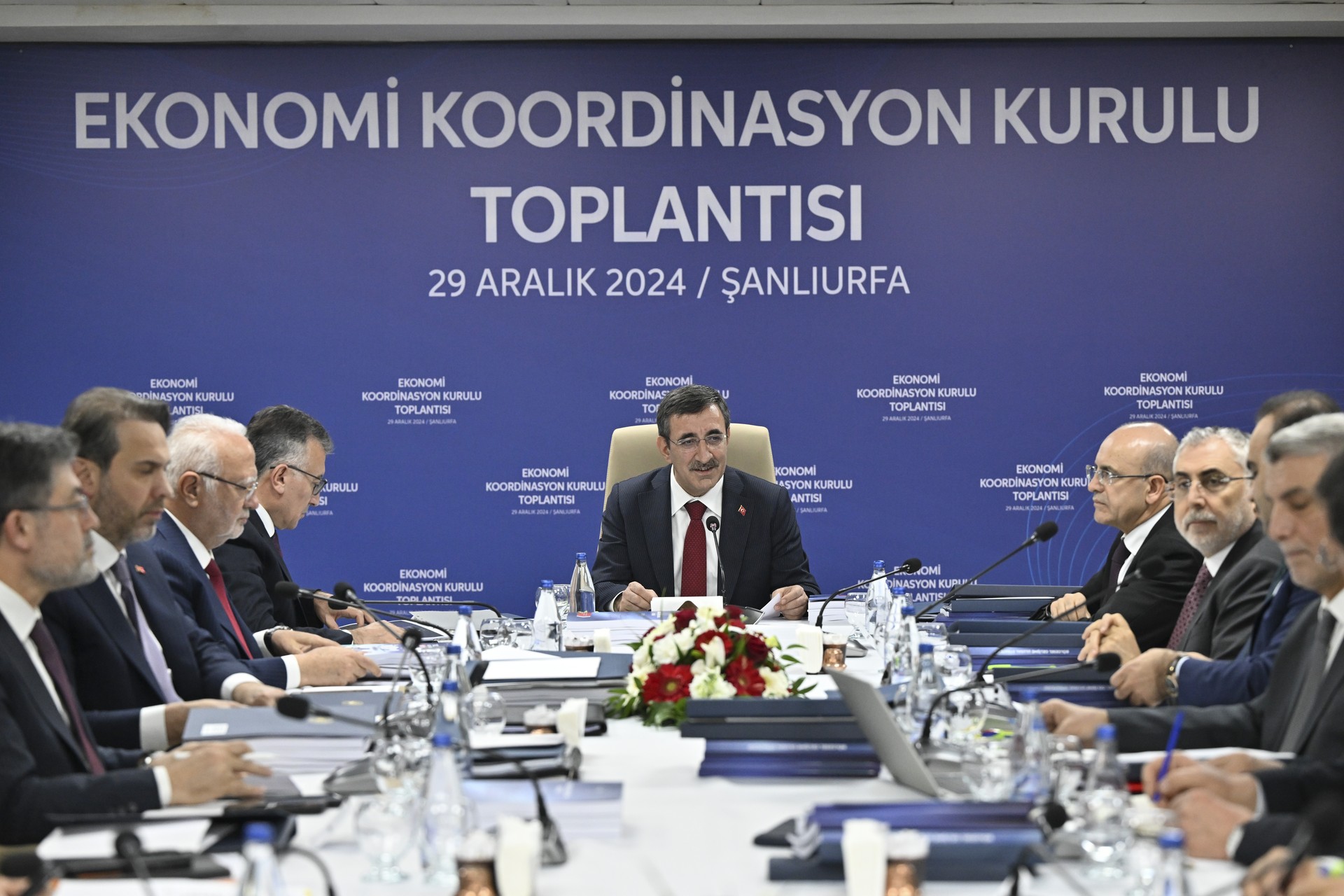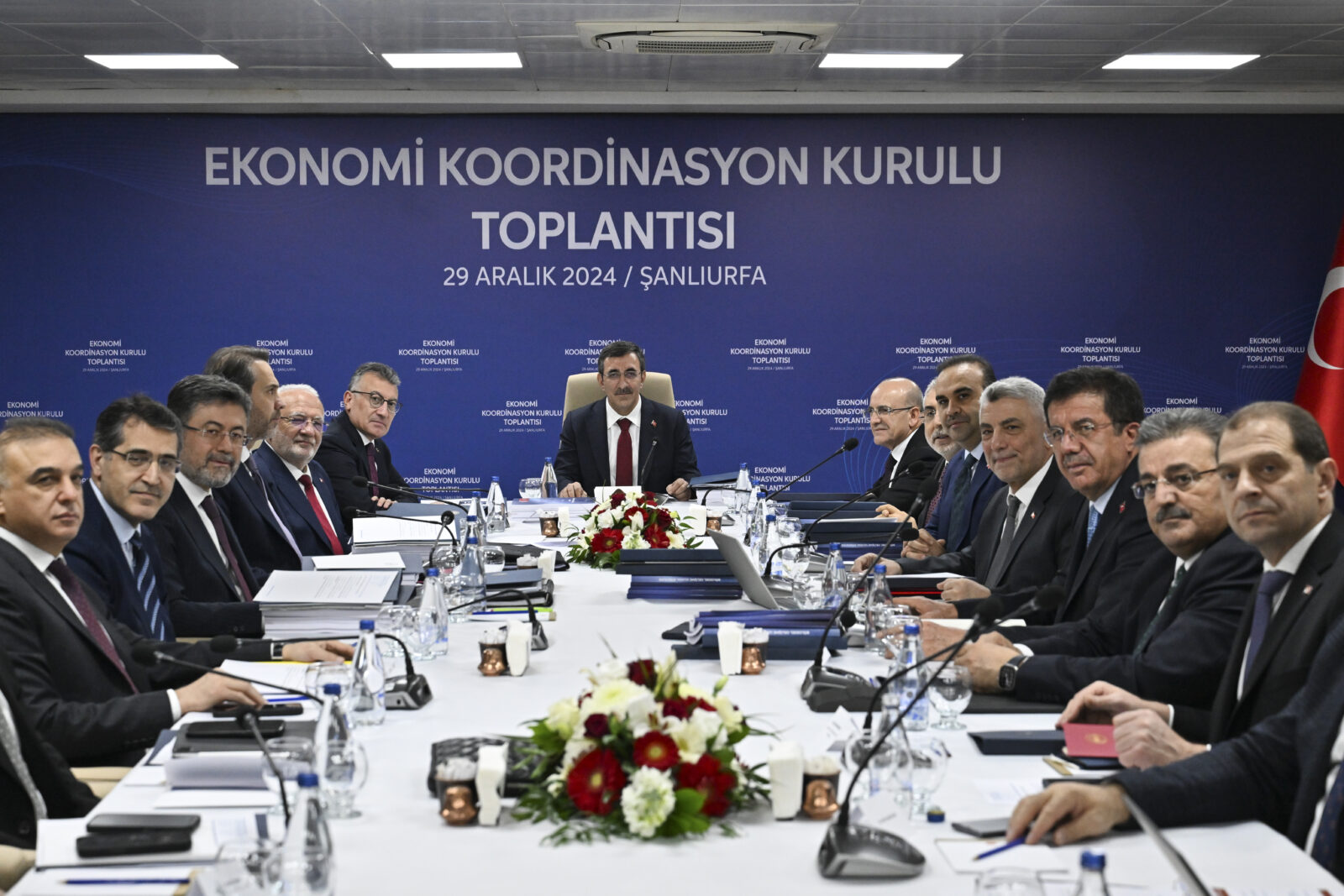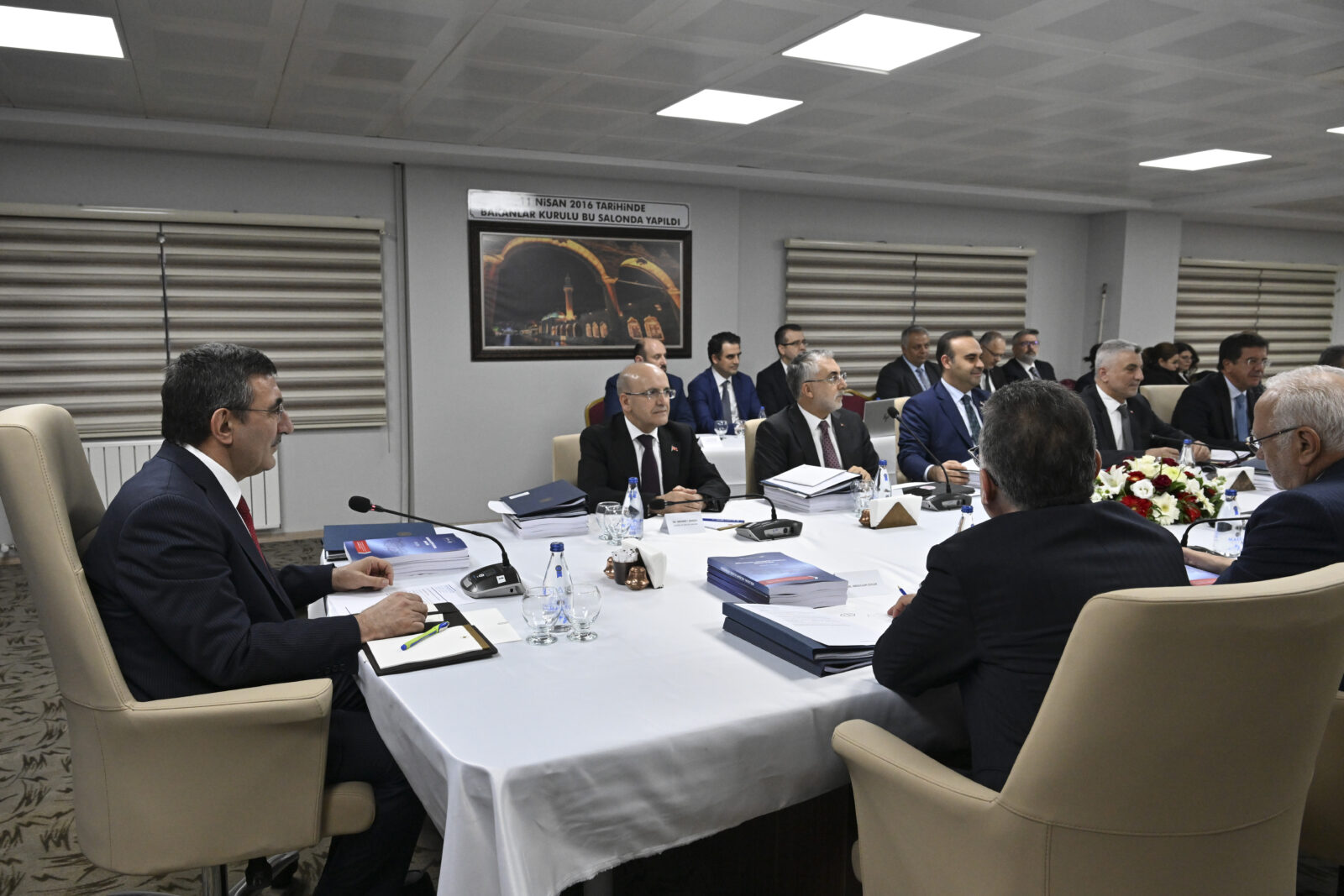
The final Economic Coordination Committee meeting of 2024, convened by Turkish ministers, outlined strategies to enhance food production aimed at ensuring price stability and combating inflation.
The meeting, held on Sunday in Sanliurfa, followed the “Southeastern Anatolia Project (GAP) Action Plan Information and Consultation Meeting” and was chaired by Vice President Cevdet Yilmaz.
Key attendees included Labor and Social Security Minister Vedat Isikhan, Energy and Natural Resources Minister Alparslan Bayraktar, Treasury and Finance Minister Mehmet Simsek, Industry and Technology Minister Mehmet Fatih Kacir, Agriculture and Forestry Minister Ibrahim Yumakli, AK Party Parliamentary Group Chairman Abdullah Guler, AK Party Deputy Chairman Mustafa Elitas, AK Party Deputy Chairman for Economic Affairs Nihat Zeybekci and Presidential Strategy and Budget Director Ibrahim Senel.

Following the meeting, a written statement was released via Yilmaz's X account, highlighting the global economic challenges of 2023, including geopolitical tensions, rising protectionism and persistent uncertainties. Despite these hurdles, Türkiye effectively implemented its economic program launched in 2023, demonstrating robust coordination.
The statement emphasized that the program yielded significant results such as a decline in inflation, economic rebalancing, a substantial reduction in the current account deficit, and record-high international reserves.
Key achievements outlined in the statement include:
These milestones established a strong foundation for the Medium-Term Program's dual goals: achieving price stability and accelerating structural transformation.
The statement emphasized the necessity of regional development to enhance Türkiye's competitiveness and growth potential. It underscored that development policies aim to reduce regional disparities, ensure balanced social welfare, and maximize the potential of all regions.

Following the meeting, a written statement was released via Yilmaz's X account, highlighting the global economic challenges of 2023, including geopolitical tensions, rising protectionism and persistent uncertainties. Despite these hurdles, Türkiye effectively implemented its economic program launched in 2023, demonstrating robust coordination.
The statement emphasized that the program yielded significant results such as a decline in inflation, economic rebalancing, a substantial reduction in the current account deficit, and record-high international reserves.
Key achievements outlined in the statement include:
These milestones established a strong foundation for the Medium-Term Program's dual goals: achieving price stability and accelerating structural transformation.
The statement emphasized the necessity of regional development to enhance Türkiye's competitiveness and growth potential. It underscored that development policies aim to reduce regional disparities, ensure balanced social welfare, and maximize the potential of all regions.
The Southeastern Anatolia Project (GAP) was highlighted as a pivotal regional initiative contributing to Türkiye's economy. Under the 2024–2028 GAP Action Plan, investments in agricultural irrigation will be completed, smart farming practices will be adopted, rural economies will be diversified, tourism-driven growth will be promoted, and labor-intensive sectors will receive investment incentives.
Looking ahead, the statement reiterated Türkiye's commitment to implementing regional development programs across sectors such as transportation, industry, tourism, and logistics with a holistic perspective and inter-agency cooperation.
Key topics discussed at the meeting included: